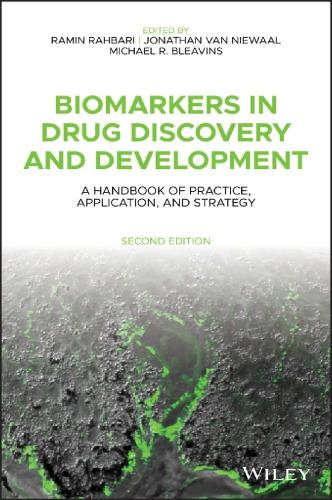Dedication
SirIsaacNewton,oneofthegreatestscientistsofhistime,wrote“IfI haveseenfurtheritisbystandingontheshouldersofGiants.” Althoughhewasalmostcertainlyreferringtohisscientificachievements,theunderlingconceptoflearningfromourforbeareristruein anyendeavor.Indeed,thisconceptcanbefurtherextendedtoinclude thosewhoarethereinthepresentday,supportingtheactivitiesofan individualasheorsheattemptstoaccomplishthatwhichtheyviewas important.Withthisthoughtinmind,Ihavededicatedthisbooktothe scientistswhocamebeforeme,thosewhomentoredme,andthosewho workwithmeonadailybasis.Inaddition,andperhapsmoreimportantly,thistextisdedicatedtothelovingandsupportivefamilythat hashelpedmebecomethepersonthatIamtoday.Specialthanksare offeredtomymother,father,sister,brother,mythreechildren,andof course,mywifeKathleen.ThesearethegiantsonwhoseshouldersI havestoodupon.
1. Drugdiscoveryanddevelopment:Anoverviewofmodern methodsandprinciples1
Drugdiscoveryanddevelopmentfrom20,000Feet11
Targetselection:thefirststepforward15
Hitidentification:findingastartingpoint19 Identifyaclinicalcandidate:jugglingtheproperties25 Questions31 References31
2. Thedrugdiscoveryprocess:Fromancienttimestothe presentday43
Theageofbotanicals:pre-industrialdrugdiscovery44
Earlybiotherapeutics:beforethebiotechnologyrevolution48
PaulEhrlich:thefatherofmoderndrugdiscovery51
Milestonesindrugdiscovery53
Milestonesinanimalmodels:breedingabettermodel54
TheWistarrat54
Immunocompromisedmice55
Transgenicanimalmodels56 Knockoutanimalmodels58
Milestonesinmolecularscience60
X-raycrystallography60
Molecularmodelingandcomputationalchemistry63
High-throughputtechnology:chemicalsynthesisandscreeningscience64
Milestonesinbiotechnology70
RecombinantDNAandtransfectiontechnology72
Polymerasechainreactiontechnology75
DNASequencingandgenomics76 Proteomics80
Monoclonalantibodyandhybridomatechnology83
Theriseofbiologicsandmacromoleculartherapeutics86 Societalandgovernmentalimpacts87
ThePureFoodandDrugActof190688
TheElixirofSulfanilamideDisasterof193789
TheThalidomidestory91 Regulatorymilestones93
Durham-HumphreyAmendmentof195194
Kefauver-HarrisAmendmentof196295
Hatch-WaxmanActof198496
BiologicsPriceCompetitionandInnovationActof200997
Futuredevelopmentsindrugdiscovery99
Questions99
References100
3. Classicaltargetsindrugdiscovery111
Proteinstructure113
Enzymes119
Inhibitionofenzymes125
G-protein-coupledreceptors130
G-protein-dependentsignalingpathways133
Cyclicadenosinemonophosphatesignaling134
IP3 signaling136
β-Arrestinpathways138
G-protein-coupledreceptorsignalingpathways140 ModulatingG-protein-coupledreceptorsignaling141
Ionchannels143
Gatingmechanisms149 Ligand-gatedchannels149
Voltage-gatedchannels152
Othergatingmechanisms155
Membranetransportproteins(transporters)156 Nuclearreceptors164
Nuclearreceptorsignalingpathways167 Modulatingnuclearreceptoractivity169
Biomolecularinteractions:protein/protein,protein/DNA,andprotein/RNA interfaces170
Typesof“hotspots”inbiomolecularinteractions172
Stabilizingbiomolecularinteractions174 Questions176
References176
4. Invitro screeningsystems185
Thelanguageofscreening:basicterms186
Concentration responsecurvesandIC50s187
Dissociationconstants(Kd)andinhibitionconstants(Ki)188 Efficacyversusbinding:EC50s190
Agonist,partialagonist,antagonist,allostericmodulators,andinverseagonists191 Agonistsandpartialagonists192 Antagonists193
Basalactivityandinverseagonist193 Receptorreserve193 Allostericmodulation194
Streptavidinandbiotin195
Biochemicalversuscellularassays196
Assaysystemsandmethodsofdetection198
Radioligandsystems199
Scintillationproximityassay201
Enzyme-linkedimmunosorbentassay204
Fluorescence-basedassaysystems206
Fluorescencepolarization207
Fluorescenceresonanceenergytransfer210
Time-resolvedfluorescenceresonanceenergytransfer214
Amplifiedluminescentproximityhomogeneousassay(AlphaScreent)217
Fluorescentdetectionofcalciumflux220
Reportergeneassays223
Chloramphenicolacetyltransferase224
β-Lactamasereporterassays224
Luciferasereporterassays226
Bioluminescenceresonanceenergytransferassays228
Kineticfluorescentmeasurementsystems230
Label-freeassaysystems231
Cellulardielectricspectroscopy232
Opticalbiosensors233
Surfaceplasmonresonancetechnology236
Electrophysiologicalpatchclamp237
Thermalshiftassay240
Highcontentscreening243
Generalconsiderationforallscreeningmethods245
Questions248
References248
5. Medicinalchemistry257
Structure activityrelationshipsandstructure propertyrelationships258
Theroleofchirality263
Pushandpullinstructure activityrelationships266
Quantitativestructure activityrelationships267
Thepharmacophore272
Developinganstructure activityrelationshipdataset276
Thestructure activityrelationshipcycle287
Bioisosterism288
Structure activityrelationship,selectivity,andphysicochemicalproperties294 “Drug-like”guidelines295 Questions297
References298
6. Invitro ADMEand invivo pharmacokinetics305
Absorption309
Solubility310
Permeability315
Sourcesofanimalmodels373
Validityofanimalmodels376
Speciesselection377
Numberofanimals378
Exemplaryanimalmodelsbydiseasecategory378
Animalmodelsinneuroscience379
Theforcedswimmingtest:Amodelofdepression379
Theelevatedplusmaze:Ameasureofanxiety380
Thenovelobjectrecognitiontest:Amodelofmemoryandcognition381
Contextualfearconditioningmodel:Amodelofcontextuallearning382
TheMorriswatermaze:Amodelofspatiallearningandmemory383
Animalmodelsofneurodegeneration384
TheSOD1G93A mouseofamyotrophiclateralsclerosis(ALS)384
TheMPTPmodelofParkinson’sdisease386
Animalmodelsofcardiovasculardisease387
Modelsofhypertension387
Modelsofhyperlipidemiaandhighcholesterol389
Modelsofatrialfibrillation391
Modelsofheartfailure393
Animalmodelsofinfectiousdisease396
Murinethighinfectionmodel397
Murinemodelofsystemicinfection397
Mousemodelofinfluenzavirusinfection398
Limitationsofanimalmodelsofinfection399
Animalmodelsofoncology400
Mousexenografttumormodel400
Mouseallografttumormodel401
Geneticallyengineeredmousemodelsofcancer402
Phase2clinicaltrials506
Phase3clinicaltrials510
Phase4clinicaltrials515
Adaptiveclinicaltrialdesign516
Meta-analysisofclinicaltrialdata517 Questions519 References519
11. Translationalmedicineandbiomarkers523
Definitionofabiomarkerandtheirclassification526 Characteristicsandimpactofbiomarkers529
Biomarkersversussurrogateendpoints531 Imagingtechnologies533
Thepracticalapplicationofbiomarkers540
DipeptidylpeptidaseIVinhibitors(Januvia)541
Physiologicalmeasurementsasbiomarkers:Orexinantagonists543 FDGPETimagingagent545
Theneurokinin1receptor,depression,andPETimaging: TheAprepitantstory546 Cancerbiomarkers548 Conclusion553 Questions553 References554
12. Organizationalconsiderationandtrendsinthe pharmaceuticalindustry561
Organizationalstructuresofpharmaceuticalcompanies562 Businessdivisionsinteractions562 Thediscoveryprojectteamevolutionarycycle563 Thebusinessclimate567 Mergersandacquisitions567 Contractresearchorganizations573 Academicdrugdiscovery575 Fundingissues581 Conclusion584 Questions584 Appendix1585 References591
13. Intellectualpropertyandpatentsindrugdiscovery595
Patentablesubjectmatter597 Inherentpropertiesandpatentability601 Noveltyandthepriorart603 Obviousnessandthepriorart604 Inventorship607
Assignmentandownership609
Classificationofpatentsandpatentapplications611
Impactofoverlappingpatents612 Patentapplicationsandtheircontents612 Contentsofapatentapplication617 Conclusion621
Questions622
References622
14. Casestudiesindrugdiscovery625
Tamiflu:Frommechanismofactiontomarketeddrug625
Histonedeacylaseinhibitors:Physicochemicaloptimizationviastructuralchange630
HIVproteaseinhibitors:Chemicallycomplexmiracledrugs632
Nitrofurantoin:Asurprisinglysuccessfuldrug637
Seldanes (Terfenadine)vsAllegras (Fexofenadine):Metabolismmatters:Safety639
Claritins (Loratadine)versusClarinexs (Desloratadine):Metabolismmatters: Pharmacokinetics642
MPTP:Parkinson’sdiseaseinabottle644
BupropionandMethylphenidate:Improvingperformanceviaformulation changes647
SelectiveinhibitionofCOX-2:Theimpactofaninadequatewrittendescription651 Antibioticresistantbacteriaandthedevelopmentof β-lactamaseinhibitors652 AssociationforMolecularPathologyvsMyriadGenetics:Thevalidityofgene patents655 Conclusion658 Questions659
Foreword
Thelastseveraldecadeshavewitnessedarevolutioninthedrugdiscoveryanddevelopmentprocess.Medicinalchemistryand invitro screeningthatwereoncemajorbottlenecksintheprocessofidentifying noveltherapeuticshavebeendramaticallyacceleratedthroughthe incorporationofautomationandthedevelopmentofenablingtechnologiessuchasrecombinantDNAandtransfectiontechnology.Highthroughputscreening,parallelsynthesis,andcombinatorialchemistry havefacilitatedthesynthesisandbiologicalevaluationoflargenumbers ofpotentiallyusefulcompounds.Theseactivities,inturn,havegeneratedvastamountsofdatathatcanbeanalyzedtodevelopstructure activityrelationshipsandstructurepropertyrelationshipsusefulforthe optimizationofleadcompounds.Atthesametime,newtechniques, technologicaladvances,andagreaterunderstandingoftheimportance ofpharmacokinetics,animalmodels,andsafetystudieshavedramaticallyalteredhownewmoleculesareselectedforclinicalstudy.Clinical trialdesignstrategies,biomarkers,translationalmedicine,theregulatory landscape,intellectualpropertyrights,andthebusinessenvironment havealsochangeddramaticallyoverthecourseofthelast40years.
Thecomplexitiesofthedrugdiscoveryanddevelopmentprocess cannotbeoverstated,norcanthewiderangeofexpertiserequiredfor thesuccessfuldevelopmentofnew,marketabletherapeutics.Inorderto thriveinthisverychanginglandscape,individualsinterestedinacareer inthepharmaceuticalindustryorrelatedfieldsmustbemorethansimplyexpertsintheirchosenfieldofstudy.Theymustalsohavean understandingofthenumerous,overlappingfieldsoftheircolleagues. BasicPrinciplesinDrugDiscoveryandDevelopment hascapturedthecriticalinformationonthedisparateprocesses,technologies,andexpertise requiredformoderndrugdiscoveryanddevelopmentandpresentsit inalogicalandconcisemannerforstudents,practicingscientists,and nonscientistwithaninterestinthepharmaceuticalindustry.Dr. BenjaminE.Blass,anexperiencededucatorandscientistwithfoundationalknowledgeinmedicinalchemistry,drugdesign,biologicaltargets,andover25yearsofexperienceinindustrialandacademicdrug discoveryanddevelopment,providesacomprehensiveaccountofthe manyfunctionsinvolvedindrugdiscoveryanddevelopment,from
initialmedicinalchemistryconceptualizationand invitro biological evaluationtoclinicaltrialsandbeyond.
Therearemanyaspectsofthisbookthatwillhelppracticingscientists,graduatestudents,andfuturedrugresearcherstodevelopastrong foundationintheconceptsthatgovernthemultidisciplinaryprocessof drugdiscovery.Throughthisuniquetext,theywillacquireanunderstandingofkeyaspectsofdrugdiscoveryanddevelopment.Theorganizationofthesubjectmaterialwaschosentoallowthereadersto incrementallyincreasetheirknowledgeinthewiderangeofdisciplines requiredtoidentifynew,marketabletherapeuticagents.Thebookis thoroughlywrittenandincludes14chapterswithmorethan300 figuresand900references.Throughoutthetextthereaderwillbecome familiarwithmorethan100drugsandclinicalcandidatesthatexemplifyimportanttheoriesandpractices.
Eachchaptercontainsexamplesofdrugspertainingtothematerialin thechapter.Theopeningchapterprovidesanoverviewofdrugdiscoveryanddevelopment.Thisservesasthefoundationforthefollowing12 chaptersthatdescribethevariousfunctionsinvolvedindrugdiscovery anddevelopment.Theearlyphasesofdrugdiscoveryaredescribedin detailthroughthediscussionsofimportanttopicssuchastargetidentification,targetvalidation,leadidentification,multidimensionallead optimization,pharmacokinetics,preclinicalpharmacodynamics,and earlytoxicology.Thisisfollowedbydiscussionsofpreclinicalactivities, clinicaltrialdesign,biomarkers,andtranslationalmedicine.Eachchapterbuildsonthepreviouschaptersandthisapproachprovidesthe readerswithanintegratedviewofthevariousmultidisciplinaryfunctionsrequiredforthedrugdiscoveryanddevelopmentprocess.
Chapter12,OrganizationalConsiderationandTrendsinthe PharmaceuticalIndustry,andChapter13,IntellectualPropertyand PatentsinDrugDiscovery,describetwoimportanttopicsessentialfor runninganeffectivepharmaceuticalR&Dbusiness,organizational structureandpatentprotection.Thesechaptersgivethereaderatrue understandingoftheorganizationalstructurerequiredforthesuccessfulmanagementofresearchanddevelopmentorganizationsandthe importanceofprotectingintellectualpropertytoensureagoodreturn oninvestment.Patentprotectionisthelifebloodofthepharmaceutical andbiotechindustries,andatthesametimeasourceofinnovationfor newdiscoveries.Patentsensurethesharingofdiscoveriesandinnovationsthatmightotherwisebekeptastradesecrets.Inthefinalchapter, casestudiesdemonstratingthepracticalapplicationoftheconceptsand principlesdescribedinthepreviouschaptersareprovided.Thesevignettesalsodescribeimportantlessonslearnedineachcase,someof whichchangedthewaymoderndrug-discoveryresearchanddevelopmentprogramsareexecuted.
Althoughtherearenumeroustextbooksthatdiscussvariousaspects ofthedrugdiscoveryanddevelopmentprocess,noneofthemprovides acomprehensiveviewoftheprocess. BasicPrinciplesinDrugDiscovery andDevelopment isuniqueinitscomprehensiveapproachtothiscomplexendeavor.Inwritingthistextbook,Dr.Blasshasprovidedan importantnewtoolfortheeducationofthenextgenerationandavaluableresourceforpeoplewithavestedinterestintheidentificationand commercializationofnovelmedications.
LauraH.CarnellProfessor
DirectorMoulderCenterforDrugDiscoveryResearch SchoolofPharmacy,TempleUniversity Philadelphia,PA,UnitedStates
MagidAbou-Gharbia,PhD,FRSC
Another random document with no related content on Scribd:
“No! Horrible!” said Kate. “But do get me a yellow taxi. That is quite safe.”
“Well, the man has gone for the automobile. You are English, yes?”
“Irish,” said Kate.
“Ah Irish!” he replied, with the flicker of a smile.
“You speak English awfully well,” she said.
“Yes! I was educated there. I was in England seven years.”
“Were you! My name is Mrs Leslie.”
“Ah Leslie! I knew James Leslie in Oxford. He was killed in the war.”
“Yes. That was my husband’s brother.”
“Oh really!”
“How small the world is!” said Kate.
“Yes indeed!” said the general.
There was a pause.
“And the gentlemen who are with you, they are—?”
“American,” said Kate.
“Ah Americans! Ah yes!”
“The older one is my cousin—Owen Rhys.”
“Owen Rhys! Ah yes! I think I saw in the newspaper you were here in town—visiting Mexico.”
He spoke in a peculiar quiet voice, rather suppressed, and his quick eyes glanced at her, and at his surroundings, like those of a man perpetually suspecting an ambush. But his face had a certain silent hostility, under his kindness. He was saving his nation’s reputation.
“They did put in a not very complimentary note,” said Kate. “I think they don’t like it that we stay in the Hotel San Remo. It is too poor
and foreign. But we are none of us rich, and we like it better than those other places.”
“The Hotel San Remo? Where is that?”
“In the Avenida del Peru. Won’t you come and see us there, and meet my cousin and Mr Thompson?”
“Thank you! Thank you! I hardly ever go out. But I will call if I may, and then perhaps you will all come to see me at the house of my friend, Señor Ramón Carrasco.”
“We should like to,” said Kate.
“Very well. And shall I call, then?”
She told him a time, and added:
“You mustn’t be surprised at the hotel. It is small, and nearly all Italians. But we tried some of the big ones, and there is such a feeling of lowness about them, awful! I can’t stand the feeling of prostitution. And then the cheap insolence of the servants. No, my little San Remo may be rough, but it’s kindly and human, and it’s not rotten. It is like Italy as I always knew it, decent, and with a bit of human generosity. I do think Mexico City is evil, underneath.”
“Well,” he said, “the hotels are bad. It is unfortunate, but the foreigners seem to make the Mexicans worse than they are, naturally. And Mexico, or something in it, certainly makes the foreigners worse than they are at home.”
He spoke with a certain bitterness.
“Perhaps we should all stay away,” she said.
“Perhaps!” he said, lifting his shoulders a little. “But I don’t think so.”
He relapsed into a slightly blank silence. Peculiar how his feelings flushed over him, anger, diffidence, wistfulness, assurance, and an anger again, all in little flushes, and somewhat naïve.
“It doesn’t rain so much,” said Kate. “When will the car come?”
“It is here now. It has been waiting some time,” he replied.
“Then I’ll go,” she said.
“Well,” he replied, looking at the sky. “It is still raining, and your dress is very thin. You must take my cloak.”
“Oh!” she said, shrinking. “It is only two yards.”
“It is still raining fairly fast. Better either wait, or let me lend you my cloak.”
He swung out of his cloak with a quick little movement, and held it up to her. Almost without realising, she turned her shoulders to him, and he put the cape on her. She caught it round her, and ran out to the gate, as if escaping. He followed, with a light yet military stride. The soldiers saluted rather slovenly, and he responded briefly.
A not very new Fiat stood at the gate, with a chauffeur in a short red-and-black check coat. The chauffeur opened the door. Kate slipped off the cloak as she got in, and handed it back. He stood with it over his arm.
“Goodbye!” she said. “Thank you ever so much. And we shall see you on Tuesday. Do put your cape on.”
“On Tuesday, yes. Hotel San Remo. Calle de Peru,” he added to the chauffeur. Then turning again to Kate: “The hotel, no?”
“Yes,” she said, and instantly changed. “No, take me to Sanborn’s, where I can sit in a corner and drink tea to comfort me.”
“To comfort you after the bull-fight?” he said, with another quick smile. “To Sanborn’s, Gonzalez.”
He saluted and bowed and closed the door. The car started.
Kate sat back, breathing relief. Relief to get away from that beastly place. Relief even to get away from that nice man. He was awfully nice. But he made her feel she wanted to get away from him too. There was that heavy, black Mexican fatality about him, that put a burden on her. His quietness, and his peculiar assurance, almost aggressive; and at the same time, a nervousness, an uncertainty. His heavy sort of gloom, and yet his quick, naïve, childish smile. Those
black eyes, like black jewels, that you couldn’t look into, and which were so watchful; yet which, perhaps, were waiting for some sign of recognition and of warmth! Perhaps!
She felt again, as she felt before, that Mexico lay in her destiny almost as a doom. Something so heavy, so oppressive, like the folds of some huge serpent that seemed as if it could hardly raise itself. She was glad to get to her corner in the tea-house, to feel herself in the cosmopolitan world once more, to drink her tea and eat strawberry shortcake and try to forget.
CHAP: II. TEA-PARTY IN TLACOLULA.
Owen came back to the hotel at about half-past six, tired, excited, a little guilty, and a good deal distressed at having let Kate go alone. And now the whole thing was over, rather dreary in spirit.
“Oh, how did you get on?” he cried, the moment he saw her, afraid almost like a boy of his own sin of omission.
“I got on perfectly. Went to Sanborn’s for tea, and had strawberry shortcake—so good!”
“Oh, good for you!” he laughed in relief. “Then you weren’t toomuch overcome! I’m so glad. I had such awful qualms after I’d let you go. Imagined all the things that are supposed to happen in Mexico— chauffeur driving away with you into some horrible remote region, and robbing you and all that—but then I knew really you’d be all right. Oh, the time I had—the rain!—and the people throwing things at my bald patch—and those horses—wasn’t that horrible?—I wonder I’m still alive.” And he laughed with tired excitement, putting his hand over his stomach and rolling his eyes.
“Aren’t you drenched?” she said.
“Drenched!” he replied. “Or at least I was. I’ve dried off quite a lot. My rain-coat is no good—I don’t know why I don’t buy another. Oh, but what a time! The rain streaming on my bald head, and the crowd behind throwing oranges at it. Then simply goredin my inside about letting you go alone. Yet it was the only bull-fight I shall ever see. I came then before it was over. Bud wouldn’t come. I suppose he’s still there.”
“Was it as awful as the beginning?” she asked.
“No! No! It wasn’t. The first was worst—that horse-shambles. Oh, they killed two more horses. And five bulls! Yes, a regular butchery. But some of it was very neat work; those toreadors did some very pretty feats. One stood on his cloak while a bull charged him.”
“I think,” interrupted Kate, “if I knew that some of those toreadors were going to be tossed by the bull, I’d go to see another bull-fight. Ugh, how I detest them! The longer I live the more loathesome the human species becomes to me. Howmuch nicer the bulls are!”
“Oh, quite!” said Owen vaguely. “Exactly. But still there was some very skilful work, very pretty. Really very plucky.”
“Yah!” snarled Kate. “Plucky! They with all their knives and their spears and cloaks and darts and they know just how a bull will behave. It’s just a performance of human beings torturing animals, with those common fellows showing off, how smart they are at hurting a bull. Dirty little boys maiming flies—that’s what they are. Only grown-up, they are bastards, not boys. Oh, Iwish I could be a bull, just for five minutes. Bastard, that’s what I call it!”
“Well!” laughed Owen uneasily. “It is rather.”
“Call that manliness!” cried Kate. “Then thank God a million times that I’m a woman, and know poltroonery and dirty-mindedness when I see it.”
Again Owen laughed uncomfortably.
“Go upstairs and change,” she said. “You’ll die.”
“I think I’d better. I feel I might die any minute, as a matter of fact. Well, till dinner then. I’ll tap at your door in half an hour.”
Kate sat trying to sew, but her hand trembled. She could not get the bull-ring out of her mind, and something felt damaged in her inside. She straightened herself, and sighed. She was really very angry, too, with Owen. He was naturally so sensitive, and so kind. But he had the insidious modern disease of tolerance. He must tolerate everything, even a thing that revolted him. He would call it Life! He
would feel he had lived this afternoon. Greedy even for the most sordid sensations.
Whereas she felt as if she had eaten something which was giving her ptomaine poisoning. If thatwas life!
Ah men, men! They all had this soft rottenness of the soul, a strange perversity which made even the squalid, repulsive things seem part of life to them. Life! And what is life? A louse lying on its back and kicking? Ugh!
At about seven o’clock Villiers came tapping. He looked wan, peaked, but like a bird that had successfully pecked a bellyful of garbage.
“Oh it was GREAT!” he said, lounging on one hip. “GREAT! They killed sevenBULLS.”
“No calves, unfortunately,” said Kate, suddenly furious again. He paused to consider the point, then laughed. Her anger was another slight sensational amusement to him.
“No, no calves,” he said. “The calves have come home to be fattened. But several more horses after you’d gone.”
“I don’t want to hear,” she said coldly.
He laughed, feeling rather heroic. After all, one must be able to look on blood and bursten bowels calmly: even with a certain thrill. The young hero! But there were dark rings round his eyes, like a debauch.
“Oh but!” he began, making a rather coy face. “Don’t you want to hear what I did after! I went to the hotel of the chief toreador, and saw him lying on his bed all dressed up, smoking a fat cigar. Rather like a male Venus who is never undressed. So funny!”
“Who took you there?” she said.
“That Pole, you remember?—and a Spaniard who talked English. The toreador was great, lying on his bed in all his get-up, except his
shoes, and quite a crowd of men going over it all again— wawawawawa!—you never heard such a row!”
“Aren’t you wet?” said Kate.
“No, not at all. I’m perfectly dry. You see I had my coat. Only my head, of course. My poor hair was all streaked down my face like streaks of dye.” He wiped his thin hair across his head with rather self-conscious humour. “Hasn’t Owen come in?” he asked.
“Yes, he’s changing.”
“Well I’ll go up. I suppose it’s nearly supper time. Oh yes, it’s after!” At which discovery he brightened as if he’d received a gift.
“Oh by the way, how did you get on? Rather mean of us to let you go all alone like that,” he said, as he hung poised in the open doorway.
“Not at all,” she said. “You wanted to stay. And I can look after myself, at my time of life.”
“We-ell!” he said, with an American drawl. “Maybe you can!” Then he gave a little laugh. “But you should have seen all those men rehearsing in that bedroom, throwing their arms about, and the toreador lying on the bed like Venus with a fat cigar, listening to her lovers.”
“I’m glad I didn’t,” said Kate. Villiers disappeared with a wicked little laugh.
And as she sat her hands trembled with outrage and passion. Amoral! How could one be a-moral, or non-moral, when one’s soul was revolted! How could one be like these Americans, picking over the garbage of sensations, and gobbling it up like carrion birds. At the moment, both Owen and Villiers seemed to her like carrion birds, repulsive.
She felt, moreover, that they both hated her first because she was a woman. It was all right so long as she fell in with them in every way. But the moment she stood out against them in the least, they hated
her mechanically for the very fact that she was a woman. They hated her womanness.
And in this Mexico, with its great under-drift of squalor and heavy reptile-like evil, it was hard for her to bear up.
She was really fond of Owen. But how could she respect him? So empty, and waiting for circumstance to fill him up. Swept with an American despair of having lived in vain, or of not having reallylived. Having missed something. Which fearful misgiving would make him rush like mechanical steel filings to a magnet, towards any crowd in the street. And then all his poetry and philosophy gone with the cigarette-end he threw away, he would stand craning his neck in one more frantic effort to see—just to see. Whatever it was, he must see it. Or he might miss something. And then, after he’d seen an old ragged woman run over by a motor-car and bleeding on the floor, he’d come back to Kate pale at the gills, sick, bewildered, daunted, and yet, yes, glad he’d seen it. It was Life!
“Well,” said Kate, “I always thank God I’m not Argus. Two eyes are often two too many for me, in all the horrors. I don’t feed myself on street-accidents.”
At dinner they tried to talk of pleasanter things than bull-fights. Villiers was neat and tidy and very nicely mannered, but she knew he was keeping a little mocking laugh up his sleeve, because she could not stomach the afternoon’s garbage. He himself had black rings under his eyes, but that was because he had “lived.”
The climax came with the dessert. In walked the Pole and that Spaniard who spoke American. The Pole was unhealthy and uncleanlooking. She heard him saying to Owen, who of course had risen with automatic cordiality:
“We thought we’d come here to dinner. Well, how are you.”
Kate’s skin was already goose-flesh. But the next instant she heard that dingy voice, that spoke so many languages dingily, assailing her with familiarity:
“Ah, Miss Leslie, you missed the best part of it. You missed all the fun! Oh, I say—”
Rage flew into her heart and fire into her eyes. She got up suddenly from her chair, and faced the fellow behind her.
“Thank you!” she said. “I don’t want to hear. I don’t want you to speak to me. I don’t want to know you.”
She looked at him once, then turned her back, sat down again, and took a pitahaya from the fruit plate.
The fellow went green, and stood a moment speechless.
“Oh, all right!” he said mechanically, turning away to the Spaniard who spoke American.
“Well—see you later!” said Owen rather hurriedly, and he went back to his seat at Kate’s table.
The two strange fellows sat at another table. Kate ate her cactus fruit in silence, and waited for her coffee. By this time she was not so angry, she was quite calm. And even Villiers hid his joy in a new sensation under a manner of complete quiet composure.
When coffee came she looked at the two men at the other table, and at the two men at her own table.
“I’ve had enough of canaille, of any sort,” she said.
“Oh, I understand, perfectly,” said Owen.
After dinner, she went to her room. And through the night she could not sleep, but lay listening to the noises of Mexico City, then to the silence and the strange, grisly fear that so often creeps out on to the darkness of a Mexican night. Away inside her, she loathed Mexico City. She even feared it. In the daytime it had a certain spell—but at night, the underneath grisliness and evil came forth.
In the morning Owen also announced that he had not slept at all.
“Oh, I never slept so well since I was in Mexico,” said Villiers, with a triumphant look of a bird that has just pecked a good morsel from
the garbage-heap.
“Look at the frail aesthetic youth!” said Owen, in a hollow voice.
“His frailty and his aestheticism are both bad signs, to me,” said Kate ominously.
“And the youth. Surely that’s another!” said Owen, with a dead laugh.
But Villiers only gave a little snort of cold, pleased amusement.
Someone was calling Miss Leslie on the telephone, said the Mexican chambermaid. It was the only person Kate knew in the capital—or in the Distrito Federal—a Mrs Norris, widow of an English embassador of thirty years ago. She had a big, ponderous old house out in the village of Tlacolula.
“Yes! Yes! This is Mrs Norris. How are you? That’s right, that’s right. Now, Mrs Leslie, won’t you come out to tea this afternoon and see the garden? I wish you would. Two friends are coming in to see me, two Mexicans: Don Ramón Carrasco and General Viedma. They are both charmingmen, and Don Ramón is a great scholar. I assure you, they are both entirely the exception among Mexicans. Oh, but entirelythe exception! So now, my dearMrs Leslie, won’t you come with your cousin? I wish you would.”
Kate remembered the little general; he was a good deal smaller than herself. She remembered his erect, alert little figure, something birdlike, and the face with eyes slanting under arched eyebrows, and the little black tuft of an imperial on the chin: a face with a peculiar Chinese suggestion, without being Chinese in the least, really. An odd, detached, yet cocky little man, a true little Indian, speaking Oxford English in a rapid, low, musical voice, with extraordinarily gentle intonation. Yet those black, inhuman eyes!
Till this minute she had not really been able to recall him to herself, to get any sharp impression. Now she had it. He was an Indian pure and simple. And in Mexico, she knew, there were more generals than soldiers. There had been three generals in the Pullman coming down
from El Paso, two, more or less educated, in the “drawing-room,” and the third, a real peasant Indian, travelling with a frizzy halfwhite woman who looked as if she had fallen into a flour-sack, her face was so deep in powder, and her frizzy hair and her brown silk dress so douched with the white dust of it. Neither this “general” nor this woman had ever been in a Pullman before. But the general was sharper than the woman. He was a tall wiry fellow with a reddened pock-marked face and sharp little black eyes. He followed Owen to the smoking room, and watched with sharp eyes, to see how everything was done. And soon he knew. And he would wipe his wash-bowl dry as neatly as anybody. There was something of a real man about him. But the poor, half-white woman, when she wanted the ladies’ toilet, got lost in the passage and wailed aloud: I don’t knowwhere togo!Noséadonde!Noséadonde!—until the general sent the Pullman boy to direct her.
But it had annoyed Kate to see this general and this woman eating chicken and asparagus and jelly in the Pullman, paying fifteen pesos for a rather poor dinner, when for a peso-and-a-half apiece they could have eaten a better meal, and real Mexican, at the meal-stop station. And all the poor, barefoot people clamouring on the platform, while the “general,” who was a man of their own sort, nobly swallowed his asparagus on the other side of the windowpane.
But this is how they save the people, in Mexico and elsewhere. Some tough individual scrambles up out of the squalor and proceeds to save himself. Who pays for the asparagus and jelly and face-powder, nobody asks, because everybody knows.
And so much for Mexican generals: as a rule, a class to be strictly avoided.
Kate was aware of all this. She wasn’t much interested in any sort of Mexican in office. There is so much in the world that one wants to avoid, as one wants to avoid the lice that creep on the unwashed crowd.
Being rather late, Owen and Kate bumped out to Tlacolula in a Ford taxi. It was a long way, a long way through the peculiar squalid endings of the town, then along the straight road between trees, into the valley. The sun of April was brilliant, there were piles of cloud about the sky, where the volcanoes would be. The valley stretched away to its sombre, atmospheric hills, in a flat dry bed, parched except where there was some crop being irrigated. The soil seemed strange, dry, blackish, artificially wetted, and old. The trees rose high, and hung bare boughs, or withered shade. The buildings were either new and alien, like the Country Club, or cracked and dilapidated, with all the plaster falling off. The falling of thick plaster from cracked buildings—one could almost hear it!
Yellow tram-cars rushed at express speed away down the fenced-in car-lines, rushing round towards Xochimilco or Tlalpam. The asphalt road ran outside these lines, and on the asphalt rushed incredibly dilapidated Ford omnibuses, crowded with blank dark natives in dirty cotton clothes and big straw hats. At the far edge of the road, on the dust-tracks under the trees, little donkeys under huge loads loitered towards the city, driven by men with blackened faces and bare, blackened legs. Three-fold went the traffic; the roar of the tramtrains, the clatter of the automobiles, the straggle of asses and of outside-seeming individuals.
Occasional flowers would splash out in colour from a ruin of falling plaster. Occasional women with strong, dark-brown arms would be washing rags in a drain. An occasional horseman would ride across to the herd of motionless black-and-white cattle on the field. Occasional maize fields were already coming green. And the pillars that mark the water conduits passed one by one.
They went through the tree-filled plaza of Tlacolula, where natives were squatting on the ground, selling fruits or sweets, then down a road between high walls. They pulled up at last at big gate-doors, beyond which was a heavy pink-and-yellow house, and beyond the house, high, dark cypress trees.
In the road two motor-cars were already standing. That meant other visitors. Owen knocked on the studded fortress doors: there was an imbecile barking of dogs. At last a little footman with a little black moustache opened silently.
The square, inner patio, dark, with sun lying on the heavy arches of one side, had pots of red and white flowers, but was ponderous, as if dead for centuries. A certain dead, heavy strength and beauty seemed there, unable to pass away, unable to liberate itself and decompose. There was a stone basin of clear but motionless water, and the heavy reddish-and-yellow arches went round the courtyard with warrior-like fatality, their bases in dark shadow. Dead, massive house of the Conquistadores, with a glimpse of tall-grown garden beyond, and further Aztec cypresses rising to strange dark heights. And dead silence, like the black, porous, absorptive lava rock. Save when the tram-cars battered past outside the solid wall.
Kate went up the jet-like stone staircase, through the leather doors. Mrs Norris came forward on the terrace of the upper patio to receive her guests.
“I’m so glad, my dear, that you came. I should have rung you up before, but I’ve had such trouble with my heart. And the doctor wanting to send me down to a lower altitude! I said to him, I’ve no patience! If you’re going to cure me, cure me at an altitude of seven thousand feet or else admit your incompetence at once. Ridiculous, this rushing up and down from one altitude to another. I’ve lived at this height all these years. I simply refuse to be bundled down to Cuernavaca or some other place where I don’t want to go. Well, my dear, and how are you?”
Mrs Norris was an elderly woman, rather like a conquistador herself in her black silk dress and her little black shoulder-shawl of fine cashmere, with a short silk fringe, and her ornaments of black enamel. Her face had gone slightly grey, her nose was sharp and dusky, and her voice hammered almost like metal, a slow, distinct, peculiar hard music of its own. She was an archaeologist, and she had studied the Aztec remains so long, that now some of the black-
grey look of the lava rock, and some of the experience of the Aztec idols, with sharp nose and slightly prominent eyes and an expression of tomb-like mockery, had passed into her face. A lonely daughter of culture, with a strong mind and a dense will, she had browsed all her life on the hard stones of archaeological remains, and at the same time she had retained a strong sense of humanity, and a slightly fantastic humorous vision of her fellow men.
From the first instant, Kate respected her for her isolation and her dauntlessness. The world is made up of a mass of people and a few individuals. Mrs Norris was one of the few individuals. True, she played her social game all the time. But she was an odd number; and all alone, she could give the even numbers a bad time.
“But come in. Do come in!” she said, after keeping her two guests out on the terrace that was lined with black idols and dusty native baskets and shields and arrows and tapa, like a museum.
In the dark sitting-room that opened on to the terrace were visitors: an old man in a black morning coat and white hair and beard, and a woman in black crêpe-de-chine, with the inevitable hat of her sort upon her grey hair: a stiff satin turned up on three sides and with black ospreys underneath. She had the baby face and the faded blue eyes and the middle-west accent inevitable.
“Judge and Mrs Burlap.”
The third visitor was a youngish man, very correct and not quite sure. He was Major Law, American military attaché at the moment.
The three people eyed the newcomers with cautious suspicion. They might be shady. There are indeed so many shady people in Mexico that it is taken for granted, if you arrive unannounced and unexpected in the capital, that you are probably under an assumed name, and have some dirty game up your sleeve.
“Been long in Mexico?” snapped the Judge; the police enquiry had begun.
“No!” said Owen, resonantly, his gorge rising. “About two weeks.”
“You are an American?”
“I,” said Owen, “am American. Mrs Leslie is English—or rather Irish.”
“Been in the club yet?”
“No,” said Owen, “I haven’t. American clubs aren’t much in my line. Though Garfield Spence gave me a letter of introduction.”
“Who? Garfield Spence?” The Judge started as if he had been stung. “Why the fellow’s nothing better than a bolshevist. Why he went to Russia!”
“I should rather like to go to Russia myself,” said Owen. “It is probably the most interesting country in the world to-day.”
“But weren’t you telling me,” put in Mrs Norris, in her clear, metalmusical voice, “that you loved China so much, Mr Rhys?”
“I didlike China verymuch,” said Owen.
“And I’m sure you made some wonderful collections. Tell me now, what was your particular fancy?”
“Perhaps, after all,” said Owen, “it was jade.”
“Ah jade! Yes! Jade! Jade is beautiful! Those wonderful little fairylands they carve in jade!”
“And the stone itself! It was the delicate stone that fascinated me,” said Owen. “The wonderful quality of it!”
“Ah wonderful, wonderful! Tell me now, dear Mrs Leslie, what you have been doing since I saw you?”
“We went to a bull-fight, and hated it,” said Kate. “At least I did. We sat in the Sun, near the ring, and it was all horrible.”
“Horrible, I am sure. I never went to a bull-fight in Mexico. Only in Spain, where there is wonderful colour. Did you ever try a bull-fight, Major?”
“Yes, I have been several times.”
“You have! Then you know all about it. And how are you liking Mexico, Mrs Leslie?”
“Not much,” said Kate. “It strikes me as evil.”
“It does! It does!” said Mrs Norris. “Ah, if you had known it before! Mexico before the revolution! It was different then. What is the latest news, Major?”
“About the same,” said the Major. “There is a rumour that the new President will be turned down by the army, a few days before he comes into office. But you never know.”
“I think it would be a great shame not to let him have a try,” put in Owen hotly. “He seems a sincere man, and just because he is honestly a Labour man, they want to shut him out.”
“Ah, my dear Mr Rhys, they alltalk so nobly beforehand. If only their deeds followed their words, Mexico would be heaven on earth.”
“Instead of hell on earth,” snapped the Judge.
A young man and his wife, also Americans, were introduced as Mr and Mrs Henry. The young man was fresh and lively.
“We were talking about the new President,” said Mrs Norris.
“Well, why not!” said Mr Henry breezily. “I’m just back from Orizaba. And do you know what they’ve got pasted up on the walls?— Hosanna! Hosanna! Hosanna! Viva el Jesús Cristo de Mexico, SocratesTomasMontes!”
“Why, did you ever hear of such a thing!” said Mrs Norris.
“Hosanna!Hosanna!Hosanna!To the new Labour President! I think it’s rich,” said Henry.
The Judge stamped his stick on the ground in a speechless access of irritability.
“They pasted on my luggage,” said the Major, “when I came through Vera Cruz: La degenerada media clasa, Será regenerada, por mi,
Montes. The degenerate middle class shall be regenerated by me, Montes.”
“Poor Montes!” said Kate. “He seems to have got his work cut out.”
“He has indeed!” said Mrs Norris. “Poor man, I wish he might come in peacefully and put a strong hand on the country. But there’s not much hope, I’m afraid.”
There was a silence, during which Kate felt that bitter hopelessness that comes over people who know Mexico well. A bitter barren hopelessness.
“How can a man who comes in on a Labour vote, even a doctored one, put a strong hand on a country!” snapped the Judge. “Why he came in on the very cry of Down withthestrong hand!” And again the old man stamped his stick in an access of extreme irritability.
This was another characteristic of the old residents of the city: A state of intense, though often suppressed irritation, an irritation amounting almost to rabies.
“Oh, but mayn’t it be possible that he will change his views a little on coming into power?” said Mrs Norris. “So many Presidents have done so.”
“I should say very probable, if ever he gets into power,” said young Henry. “He’ll have all his work cut out saving Socrates Tomas, he won’t have much time left for saving Mexico.”
“He’s a dangerous fellow, and will turn out a scoundrel,” said the Judge.
“Myself,” said Owen, “as far as I have followed him, I believe he is sincere, and I admire him.”
“I thought it was so nice,” said Kate, “that they received him in New York with loud music by the Street Sweepers’ Band. The Street Sweepers’ Band they sent to receive him from the ship!”
“You see,” said the Major, “no doubt the Labour people themselves wished to send that particular band.”
“But to be President Elect, and to be received by the Street Sweepers’ Band!” said Kate. “No, I can’t believe it!”
“Oh, it actually was so,” said the Major. “But that is Labour hailing Labour, surely.”
“The latest rumour,” said Henry, “is that the army will go over en bloc to General Angulo about the twenty-third, a week before the inauguration.”
“But how is it possible?” said Kate, “when Montes is so popular?”
“Montes popular!” they all cried at once. “Why!” snapped the Judge, “he’s the most unpopular man in Mexico.”
“Not with the Labour Party!” said Owen, almost at bay.
“The Labour Party!” the Judge fairly spat like a cat. “There is no such thing. What is the Labour Party in Mexico? A bunch of isolated factory hands here and there, mostly in the State of Vera Cruz. The Labour Party! They’ve done what they could already. We know them.”
“That’s true,” said Henry. “The Labourites have tried every little game possible. When I was in Orizaba they marched to the Hotel Francia to shoot all the gringos and the Gachupines. The hotel manager had pluck enough to harangue them, and they went off to the next hotel. When the man came out there to talk to them, they shot him before he got a word out. It’s funny, really! If you have to go to the Town Hall, and you’re dressed in decent clothes, they let you sit on a hard bench for hours. But if a street-sweeper comes in, or a fellow in dirty cotton drawers, it is Buenos Dios! Señor! Pase Usted! Quiere Usted algo? while you sit there waiting their pleasure. Oh, it’s quite funny.”
The Judge trembled with irritation like an access of gout. The party sat in gloomy silence, that sense of doom and despair overcoming them as it seems to overcome all people who talk seriously about Mexico. Even Owen was silent. He too had come through Vera Cruz, and had had his fright; the porters had charged him twenty pesos to
carry his trunk from the ship to the train. Twenty pesos is ten dollars, for ten minutes’ work. And when Owen had seen the man in front of him arrested and actually sent to jail, a Mexican jail at that, for refusing to pay the charge, “the legal charge,” he himself had stumped up without a word.
“I walked into the National Museum the other day,” said the Major quietly. “Just into that room on the patio where the stones are. It was rather a cold morning, with a Norte blowing. I’d been there about ten minutes when somebody suddenly poked me on the shoulder. I turned round, and it was a lout in tight boots. You spik English?I said yes!Then he motioned me to take my hat off: I’d got to take my hat off. Whatfor?said I, and I turned away and went on looking at their idols and things: ugliest set of stuff in the world, I believe. Then up came the fellow with the attendant—the attendant of course wearing his cap. They began gabbling that this was the National Museum, and I must take off my hat to their national monuments. Imagine it: those dirty stones! I laughed at them and jammed my hat on tighter and walked out. They are really only monkeys, when it comes to nationalism.”
“Exactly!” cried Henry. “When they forget all about the Patria and Mexico and all that stuff, they’re as nice a people as you’d find. But as soon as they get national, they’re just monkeys. A man up from Mixcoatl told me a nice story. Mixcoatl is a capital way in the South, and they’ve got a sort of Labour bureau there. Well, the Indians come in from the hills, as wild as rabbits. And they get them into that bureau, and the Laboristas, the agitator fellows, say to them: NowSeñores, haveyou anythingtoreportfromyour native village? Haven’t you anything for which you would like redress? Then of course the Indians start complaining about one another, and the Secretary says: Wait a minute, gentlemen! Let me ring up the Governor and report this. So he goes to the telephone and starts ringing: ringing: Ah!Is thatthePalace?Is theGovernor in?Tellhim Señor Fulano wants to speak to him! The Indians sit gaping with open mouths. To them it’s a miracle. Ah! Is that you. Governor! Good morning! How are you! Can I have your attention for a
moment? Many thanks! Well I’ve got some gentlemen here down fromApaxtle,inthehills:JoséGarcia,JesusQuerido, etc.—andthey wishtoreportso-and-so. Yes!Yes!That’sit!Yes!What?Youwillsee that justice is done and the thing is made right? Ah señor , many thanks! In the name of these gentlemen from the hills, from the villageofApaxtle,manythanks.
There sit the Indians staring as if heaven had opened and the Virgin of Guadalupe was standing tiptoe on their chins. And what do you expect? The telephone is a dummy. It isn’t connected with anywhere. Isn’t that rich? But it’s Mexico.”
The moment’s fatal pause followed this funny story.
“Oh but!” said Kate, “it’s wicked! It is wicked. I’m sure the Indians would be all right, if they were left alone.”
“Well,” said Mrs Norris. “Mexico isn’t like any other place in the world.”
But she spoke with fear and despair in her voice.
“They seem to wantto betray everything,” said Kate. “They seem to love criminals and ghastly things. They seem to want the ugly things. They seem to wantthe ugly things to come up to the top. All the foulness that lies at the bottom, they want to stir up to the top. They seem to enjoy it. To enjoy making everything fouler. Isn’t it curious!”
“It is curious,” said Mrs Norris.
“But that’s what it is,” said the Judge. “They want to turn the country into one big crime. They don’t like anything else. They don’t like honesty and decency and cleanliness. They want to foster lies and crime. What they call liberty here is just freedom to commit crime. That’s what Labour means, that’s what they all mean. Free crime, nothing else.”
“I wonder all the foreigners don’t go away,” said Kate.
“They have their occupations here,” snapped the Judge.
“And the good people are all going away. They have nearly all gone, those that have anything left to go to,” said Mrs Norris. “Some of us, who have our property here, and who have made our lives here, and who know the country, we stay out of a kind of tenacity. But we know it’s hopeless. The more it changes, the worse it is.—Ah, here is Don Ramón and Don Cipriano. So pleased to see you. Let me introduce you.”
Don Ramón Carrasco was a tall, big, handsome man who gave the effect of bigness. He was middle aged, with a large black moustache and large, rather haughty eyes under straight brows. The General was in civilian clothes, looking very small beside the other man, and very smartly built, almost cocky.
“Come,” said Mrs Norris. “Let us go across and have tea.”
The Major excused himself, and took his departure.
Mrs Norris gathered her little shawl round her shoulders and led through a sombre antechamber to a little terrace, where creepers and flowers bloomed thick on the low walls. There was a bell-flower, red and velvety, like blood that is drying: and clusters of white roses: and tufts of bougainvillea, papery magenta colour.
“How lovely it is here!” said Kate. “Having the great dark trees beyond.”
But she stood in a kind of dread.
“Yes it is beautiful,” said Mrs Norris, with the gratification of a possessor. “I have such a time trying to keep these apart.” And going across in her little black shawl, she pushed the bougainvillea away from the rust-scarlet bell-flowers, stroking the little white roses to make them intervene.
“I think the two reds together interesting,” said Owen.
“Do you really!” said Mrs Norris, automatically, paying no heed to such a remark.
The sky was blue overhead, but on the lower horizon was a thick, pearl haze. The clouds had gone.
“One never sees Popocatepetl nor Ixtaccihuatl,” said Kate, disappointed.
“No, not at this season. But look, through the trees there, you see Ajusco!”
Kate looked at the sombre-seeming mountain, between the huge dark trees.
On the low stone parapet were Aztec things, obsidian knives, grimacing squatting idols in black lava, and a queer thickish stone stick, or bâton. Owen was balancing the latter: it felt murderous even to touch.
Kate turned to the general, who was near her, his face expressionless, yet alert.
“Aztec things oppress me,” she said.
“They areoppressive,” he answered, in his beautiful cultured English, that was nevertheless a tiny bit like a parrot talking.
“There is no hope in them,” she said.
“Perhaps the Aztecs never asked for hope,” he said, somewhat automatically.
“Surely it is hope that keeps one going?” she said.
“You, maybe. But not the Aztec, nor the Indian to-day.”
He spoke like a man who has something in reserve, who is only half attending to what he hears, and even to his own answer.
“What do they have, if they don’t have hope?” she said.
“They have some other strength, perhaps,” he said evasively.
“I would like to give them hope,” she said. “If they had hope, they wouldn’t be so sad, and they would be cleaner, and not have vermin.”
“That of course would be good,” he said, with a little smile. “But I think they are not so very sad. They laugh a good deal and are gay.”
“No,” she said. “They oppress me, like a weight on my heart. They make me irritable, and I want to go away.”
“From Mexico?”
“Yes. I feel I want to go away from it and never, never see it again. It is so oppressive and gruesome.”
“Try it a little longer,” he said. “Perhaps you will feel differently. But perhaps not,” he ended vaguely, driftingly.
She could feel in him a sort of yearning towards her. As if a sort of appeal came to her from him, from his physical heart in his breast. As if the very heart gave out dark rays of seeking and yearning. She glimpsed this now for the first time, quite apart from the talking, and it made her shy.
“And does everything in Mexico oppress you?” he added, almost shyly, but with a touch of mockery, looking at her with a troubled naïve face that had its age heavy and resistant beneath the surface.
“Almost everything!” she said. “It always makes my heart sink. Like the eyes of the men in the big hats—I call them the peons. Their eyes have no middle to them. Those big handsome men, under their big hats, they aren’t really there. They have no centre, no real I. Their middle is a raging black hole, like the middle of a maelstrom.”
She looked with her troubled grey eyes into the black, slanting, watchful, calculating eyes of the small man opposite her. He had a pained expression, puzzled, like a child. And at the same time something obstinate and mature, a demonish maturity, opposing her in an animal way.
“You mean we aren’t real people, we have nothing of our own, except killing and death,” he said, quite matter of fact.
“I don’t know,” she said, startled by his interpretation. “I only say how it makes me feel.”
“You are very clever, Mrs Leslie,” came Don Ramón’s quiet, but heavy teasing voice behind her. “It is quite true. Whenever a Mexican cries Viva! he ends up with Muera! When he says Viva! he really means Deathfor SomebodyorOther!I think of all the Mexican revolutions, and I see a skeleton walking ahead of a great number of people, waving a black banner with Viva la Muerte! written in large white letters. Long live Death! Not Viva Cristo Rey! but Viva Muerte Rey! Vamos!Viva!”
Kate looked round. Don Ramón was flashing his knowing brown Spanish eyes, and a little sardonic smile lurked under his moustache. Instantly Kate and he, Europeans in essence, understood one another. He was waving his arm to the last Viva!
“But,” said Kate, “I don’t want to say VivalaMuerte!”
“But when you are real Mexican—” he said, teasing.
“I nevercould be,” she said hotly, and he laughed.
“I’m afraid VivalaMuerte!hits the nail on the head,” said Mrs Norris, rather stonily. “But won’t you come to tea! Do!”
She led the way in her black little shawl and neat grey hair, going ahead like a Conquistador herself, and turning to look with her Aztec eyes through her pince-nez, to see if the others were coming.
“We are following,” said Don Ramón in Spanish, teasing her. Stately in his black suit, he walked behind her on the narrow terrace, and Kate followed, with the small, strutting Don Cipriano, also in a black suit, lingering oddly near her.
“Do I call you General or Don Cipriano?” she asked, turning to him.
An amused little smile quickly lit his face, though his eyes did not smile. They looked at her with a black, sharp look.
“As you wish,” he said. “You know General is a term of disgrace in Mexico. Shall we say Don Cipriano?”
“Yes, I like that much the best,” she said.
And he seemed pleased.
It was a round tea-table, with shiny silver tea-service, and silver kettle with a little flame, and pink and white oleanders. The little neat young footman carried the tea-cups, in white cotton gloves. Mrs Norris poured tea and cut cakes with a heavy hand.
Don Ramón sat on her right hand, the Judge on her left. Kate was between the Judge and Mr Henry. Everybody except Don Ramón and the Judge was a little nervous. Mrs Norris always put her visitors uncomfortably at their ease, as if they were captives and she the chieftainess who had captured them. She rather enjoyed it, heavily, archaeologically queening at the head of the table. But it was evident that Don Ramón, by far the most impressive person present, liked her. Cipriano, on the other hand, remained mute and disciplined, perfectly familiar with the tea-table routine, superficially quite at ease, but underneath remote and unconnected. He glanced from time to time at Kate.
She was a beautiful woman, in her own unconventional way, and with a certain richness. She was going to be forty next week. Used to all kinds of society, she watched people as one reads the pages of a novel, with a certain disinterested amusement. She was never in any society: too Irish, too wise.
“But of course nobody lives without hope,” Mrs Norris was saying banteringly to Don Ramón. “If it’s only the hope of a real, to buy a litre of pulque.”
“Ah, Mrs Norris!” he replied in his quiet, yet curiously deep voice, like a violincello: “If pulque is the highest happiness!”
“Then we are fortunate, because a tostón will buy paradise,” she said.
“It is a bon mot, Señora mia,” said Don Ramón, laughing and drinking his tea.
“Now won’t you try these little native cakes with sesame seeds on them!” said Mrs Norris to the table at large. “My cook makes them,
and her national feeling is flattered when anybody likes them. Mrs Leslie, do take one.”
“I will,” said Kate. “Does one say OpenSesame!”
“If one wishes,” said Mrs Norris.
“Won’t you have one?” said Kate, handing the plate to Judge Burlap.
“Don’t want any,” he snapped, turning his face away as if he had been offered a plate of Mexicans, and leaving Kate with the dish suspended.
Mrs Norris quickly but definitely took the plate, saying:
“Judge Burlap is afraid of Sesame Seed, he prefers the cave shut.”
And she handed the dish quietly to Cipriano, who was watching the old man’s bad manners with black, snake-like eyes.
“Did you see that article by Willis Rice Hope, in the Excelsior?” suddenly snarled the Judge, to his hostess.
“I did. I thought it very sensible.”
“The only sensible thing that’s been said about these Agrarian Laws. Sensible! I should think so. Why Rice Hope came to me, and I put him up to a few things. But his article says everything, doesn’t miss an item of importance.”
“Quite!” said Mrs Norris, with rather stony attention. “If only saying would alter things, Judge Burlap.”
“Saying the wrong thing has done all the mischief!” snapped the Judge. “Fellows like Garfield Spence coming down here and talking a lot of criminal talk. Why the town’s full of Socialists and Sinvergüenzas from New York.”
Mrs Norris adjusted her pince-nez.
“Fortunately,” she said, “they don’t come out to Tlacolula, so we needn’t think about them. Mrs Henry, let me give you some more tea.”
“Do you read Spanish?” the Judge spat out, at Owen. Owen, in his big shell spectacles, was evidently a red rag to his irritable fellowcountryman.
“No!” said Owen, round as a cannon-shot.
Mrs Norris once more adjusted her eye-glasses.
“It’s such a relief to hear someone who is altogether innocent of Spanish, and altogether unashamed,” she said. “My father had us all speaking four languages by the time we were twelve, and we have none of us ever quite recovered. My stockings were all dyed blue for me before I put my hair up. By the way! How have you been for walking, Judge? You heard of the time I had with my ankle?”
“Of course we heard!” cried Mrs Burlap, seeing dry land at last. “I’ve been trying so hard to get out to see you, to ask about it. We were so grievedabout it.”
“What happened?” said Kate.
“Why I foolishly slipped on a piece of orange peel in town—just at the corner of San Juan de Latrán and Madero. And I fell right down. And of course, the first thing I did when I got up was to push the piece of orange peel into the gutter. And would you believe it, that lot of Mex—” she caught herself up—“that lot of fellows standing there at the corner laughed heartily at me, when they saw me doing it. They thought it an excellent joke.”
“Of course they would,” said the Judge. “They were waiting for the next person to come along and fall.”
“Did nobody help you?” asked Kate.
“Oh no! If anyone has an accident in this country, you must never, neverhelp. If you touch them even, you may be arrested for causing the accident.”
“That’s the law!” said the Judge. “If you touch them before the police arrive, you are arrested for complicity. Let them lie and bleed, is the motto.”
“Is that true?” said Kate to Don Ramón.
“Fairly true,” he replied. “Yes, it is true you must not touch the one who is hurt.”
“How disgusting!” said Kate.
“Disgusting!” cried the Judge. “A great deal is disgusting in this country, as you’ll learn if you stay here long. I nearly lost my life on a banana skin; lay in a darkened room for days, between life and death, and lame for life from it.”
“How awful!” said Kate. “What did you do when you fell?”
“What did I do? Just smashed my hip.”
It had truly been a terrible accident, and the man had suffered bitterly.
“You can hardly blame Mexico for a banana skin,” said Owen, elated. “I fell on one in Lexington Avenue; but fortunately I only bruised myself on a soft spot.”
“That wasn’t your head, was it?” said Mrs Henry.
“No,” laughed Owen. “The other extreme.”
“We’ve got to add banana skins to the list of public menaces,” said young Henry. “I’m an American, and I may any day turn bolshevist, to save my pesos, so I can repeat what I heard a man saying yesterday. He said there are only two great diseases in the world today—Bolshevism and Americanism; and Americanism is the worst of the two, because Bolshevism only smashes your house or your business or your skull, but Americanism smashes your soul.”
“Who was he?” snarled the Judge.
“I forget,” said Henry, wickedly.
“One wonders,” said Mrs Norris slowly, “what he meant by Americanism.”
“He didn’t define it,” said Henry. “Cult of the dollar, I suppose.”
“Well,” said Mrs Norris. “The cult of the dollar, in my experience, is far more intense in the countries that haven’t got the dollar, than in the United States.”
Kate felt that the table was like a steel disc to which they were all, as victims, magnetised and bound.
“Where isyour garden, Mrs Norris?” she asked.
They trooped out, gasping with relief, to the terrace. The Judge hobbled behind, and Kate had to linger sympathetically to keep him company.
They were on the little terrace.
“Isn’t this strange stuff!” said Kate, picking up one of the Aztec stone knives on the parapet. “Is it a sort of jade?”
“Jade!” snarled the Judge. “Jade’s green, not black. That’s obsidian.”
“Jade can be black,” said Kate. “I’ve got a lovely little black tortoise of jade from China.”
“You can’t have. Jade’s bright green.”
“But there’s white jade too. I know there is.”
The Judge was silent from exasperation for a few moments, then he snapped:
“Jade’s bright green.”
Owen, who had the ears of a lynx, had heard.
“What’s that?” he said.
“Surely there’s more than green jade!” said Kate.
“What!” cried Owen. “More! Why there’s every imaginable tint— white, rose, lavender—”
“And black?” said Kate.
“Black? Oh yes, quite common. Why you should see my collection. The most beautiful range of colour! Only green jade! Ha-ha-ha!”—











